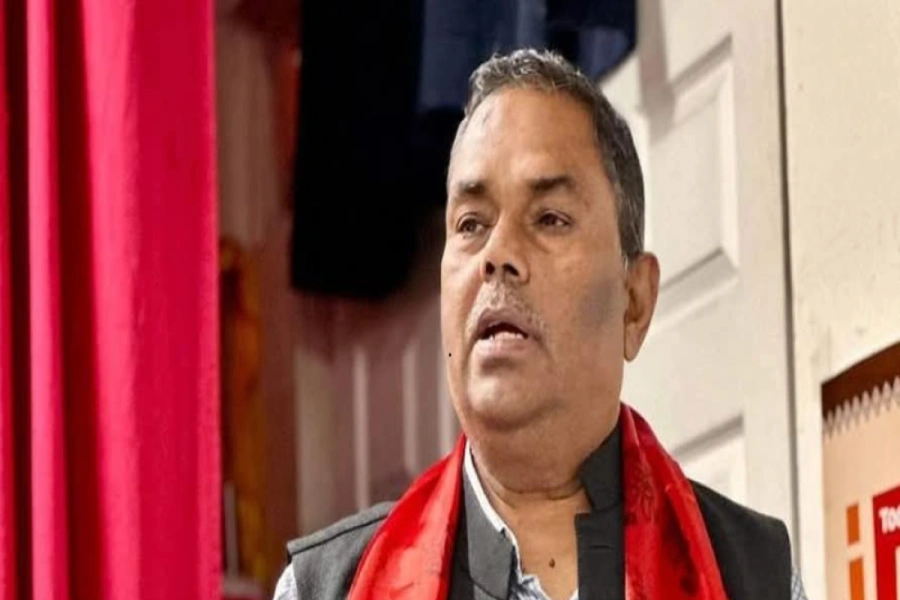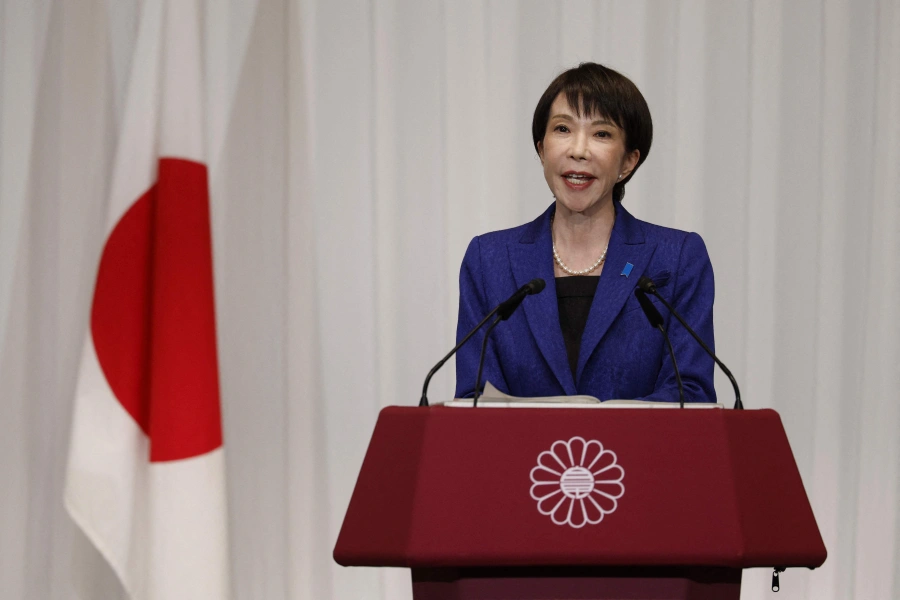Upon his death, the nation has paid a fulsome respect to Bhim Bahadur Tamang. The cremation ceremony was conducted with state honors. As a mark of respect for the departed soul, Nepali Congress decided to lower its flag, close offices and cancel all programs for three days. The massive funeral procession, the outpouring of grief and the tributes accorded to him are indications of the respect and admiration the man commanded across political and communal lines. He was adored and praised for his life-long sacrifices for the cause of his society, nation and democracy. Even more, he was admired for his personal qualities of austerity, disarming simplicity and high integrity. It is unfortunate that our society recognizes such personalities only after death.
VOID IN LANDSCAPE
I heard the news of Bhim Bahadurji’s death when I was travelling in my constituency. I could not believe it, as I had seen him hale and hearty just two days earlier. But confirmation soon followed through a message from our party secretariat. His sudden demise was shocking, as it was extremely untimely, not just on a personal level regarding his age and health condition, but also from the perspective of our party and the nation. The speech he gave just three weeks ago in Basantapur at Nepali Congress’s mass meeting was still reverberating in my mind. His stirring words about the fragile political situation of the country, deteriorating national self-esteem, and his outright disapproval of the shortsighted ethnic politics driven by personal and partisan interests, were timely warnings against forces whose actions would divide the nation along regional and ethnic lines. His death certainly created a void, that of a national personality who could make a principled stand even under an adverse situation in his ethnic landscape.
The then CPN (Maoist) had mooted the scheme of dividing the country into autonomous ethnic regions in the name of deprived and discriminated communities, as if separate ethnic political units instead of affirmative action and positive discrimination were an answer to their socio-economic deprivation. By doing so, the Maoists were trying to attract fighters from these communities for their guerilla warfare, and also create a new power base. Some others saw in the scheme a short-cut route to power. Bhim Bahadurji, as one of the senior politicians of an Adibasi-Janajati background with an impeccable record of sacrifice and service for about five decades, and spotless integrity, would have been an unquestioned leader of the new phenomenon, if he had jumped on this bandwagon. But he was a man of principles and convictions, purified through decades of social interactions and political experience. He understood the country well and stood by the values he held dear. In an opposition party rally at the Open Air Theatre at Tundikhel two months ago, he challenged the protagonists of Tamsaling state to prove their credentials in addressing the socio-economic challenges of the Tamang community such as the scourge of girl trafficking in rural settlements.
WORKAHOLIC AND ENLIGHTENED
I met Bhim Bahadurji for the first time some four decades ago in Kathmandu, when I was in student politics. He had come clandestinely from Banaras as BP Koirala’s emissary to gather firsthand information of our activities in Nepal. I have many other memories of his days in exile, in Banaras and Bombay. He often visited Bombay to monitor party activities. I used to visit Nepali Jana Samparka Samiti in Bombay for political training of party cadres every weekend from Pune where I was doing my PhD.
Prison life in Nakhu around 1973/75 was another interesting experience. A workaholic, Bhim Bahadurji kept himself busy all the time. He would volunteer for the toughest part of the kitchen chores. His passion for gardening is a legend. A popular joke in the prison was: Bhim Bahadurji, with umbrella in one hand protecting him from rain, would be watering the plants with another. He loved plants and worked passionately to tend them. He had a beautiful handwriting. I occasionally wrote feature articles in English. As we had no access to a typewriter in prison, they had to be hand-written. He did not consider my handwriting good enough to be sent out, and would volunteer to write to make it as fair as possible. He found pleasure in working for and helping others. His other love, not known to many, was literature and art. Enlightened but unassuming, he loved books and could discuss literary works and paintings at length.
BHIM BAHADUR TAMANG

BP Koirala wanted to be remembered as‘good, not great’ man. Bhim Bahadur Tamang would have fit BP’s characterization of a good man.
I had developed a sort of personal bond with him. I admired and respected him for his qualities. I always received his affection, support and encouragement. My first visit to Dolakha about twenty years ago (during my stint at the National Planning Commission), as well as subsequent ones, was made under his personal initiative. He wanted economic upliftment of Dolakha district through exploitation of its resources and was leading a campaign for early development of Upper Tamakoshi Hydro Project. The last time we met, he asked me to be the guest-of-honor at the award distribution ceremony of Nepal Karate Association on September 28 at Naya Baneshwor, where international guests were also invited. We had planned to jointly participate in the foundation laying ceremony of a bridge in Atrauli of Sarlahi on Dec. 10. It is sad that the occasion will miss his mortal presence today.
Within the party, he was one of the leaders whose positions on contentious internal matters were based on conscience. We often found ourselves on the same ground during intraparty conflicts. He and I were part of the seven-person group that made the last-ditch attempt (eventually an unsuccessful one) to avoid party split in 2003. Our formula failed because of the hawks on both sides. The party was reunited much later, only after inflicting much damage to itself and the cause of democracy.
DIFFERENT GENRE
Bhim Bahadurji, who led a Spartan and humble life, did not fit the genre of normal politicians. Always busy for the cause of others, he never cared about himself or his family. Not able to cope with a husband whose first love was always the nation and democracy (that landed him in jail and led to his exile), his wife deserted him. He was a loner ever since. His son did not stay with him, and he lived in a one-room apartment offered by a friend. He never craved name and fame, only busied himself with doing good for others.
When BP Koirala was asked by a journalist how he wanted to be remembered, the response was ‘as a good, not great’ man. History is full of great personalities who have become famous not necessarily for doing good things. In their ambition to be great, mankind has paid a heavy price. Bhim Bahadur Tamang would fit BP’s characterization of a good man. He did not desire any rewards for his work, whatever honor and recognition he got in his lifetime came his way without asking. In any case, even these recognitions (as one-time parliamentarian and a minister) were not commensurate with his life-long devotion, sacrifice and contribution. The mere fact that he lost thrice from his electoral constituency in Dolakha reflects the irony of our political life. Simplicity, service and sacrifice do not suffice in electoral politics which, more often than not, is a nasty and treacherous vocation.
In memoriam of a man who he lived his life like he played





































